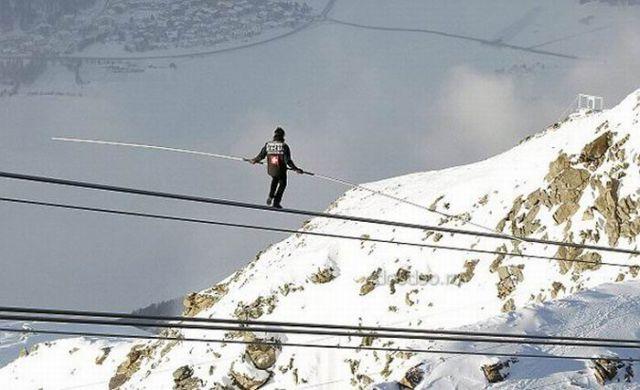After previously suggesting that the U.S. would not involve European representatives in negotiations to end Russia’s war against Ukraine, Secretary of State Marco Rubio and presidential envoy Steve Witkoff met in Paris last week for talks with Ukrainian and European officials. The U.S. presented what it called “the outlines of a durable and lasting peace,” even as Russia continued to attack Ukrainian civilian areas.
A senior European official told Illia Novikov, Aamer Madhani, and Jill Lawless of the Associated Press that the Americans presented their plan as “just ideas” that could be changed. But Barak Ravid of Axios reported on Friday that Trump was frustrated that the negotiations weren’t productive and said he wanted a quick solution.
Talks were scheduled to resume today, in London, but yesterday Rubio pulled out of them. The U.S. plan is now “a final offer,” Ravid reported, and if the Ukrainians don’t accept it, the U.S. will “walk away.”
On a bipartisan basis, since 2014 the United States has supported Ukraine’s fight to push back Russia’s invasions. But Trump and his administration have rejected this position in favor of supporting Russia. This shift has been clear in the negotiations for a solution: Trump required repeated concessions from Ukraine even as Russia continued bombing Ukraine. Axios’s Ravid saw the proposed “final offer,” and it fits this pattern.
The plan would recognize Russia’s occupation of Ukraine’s Crimea and its occupation of almost all of Luhansk oblast and the portions of Donetsk, Kherson, and Zaporizhzhia oblasts Russia has occupied. This would essentially freeze the boundary of Ukraine at the battlefront.
Ukraine would promise not to join the North Atlantic Treaty Organization (NATO), the post–World War II defensive alliance that first stood against the aggression of the Soviet Union and now stands against the aggression of Russia.
Sanctions imposed against Russia after its 2014 and 2022 invasions of Ukraine would be lifted, and the United States, in particular its energy and industrial sectors, will cooperate with Russia.
In essence, this gives Russian president Vladimir Putin everything he wanted.
What the Ukrainians get out of this deal is significantly weaker. They get “a robust security guarantee,” but Ravid notes the document is vague and does not say the U.S. will participate. We have been here before. After the Soviet Union crumbled in 1991, Ukraine had the third-largest stockpile of nuclear weapons in the world. In exchange for Ukraine’s giving up those weapons, the United States, the United Kingdom, and Russia agreed to secure Ukraine’s borders. In the 1994 Budapest Memorandum on Security Assurances, they agreed they would not use military force or economic coercion against Ukraine.
Russia violated that agreement with its 2014 and 2022 invasions, making it unlikely that Ukraine will trust any new promises of security.
Under the new plan, Ukraine would also get back a small part of Kharkiv oblast Russia has occupied. It would be able to use the Dnieper River. And it would get help and funds for rebuilding, although as Ravid notes, the document doesn’t say where the money will come from.
There is something else in the plan. The largest nuclear power plant in Europe is Ukrainian: the Zaporizhzhia plant. It will be considered Ukrainian territory, but the United States will operate it and supply the electricity it produces to both Ukraine and Russia, although the agreement apparently doesn’t say anything about how payments would work. The plan also refers to a deal between the U.S. and Ukraine for minerals, with Ukraine essentially repaying the U.S. for its past support.
Ravid notes that the U.S. drafted the plan after envoy Steve Witkoff met for more than four hours last week with Putin. But the plan has deeper roots.
This U.S.-backed plan echoes almost entirely the plan Russian operatives presented to Trump’s 2016 campaign manager Paul Manafort in exchange for helping Trump win the White House. Russia had invaded Ukraine in 2014 and was looking for a way to grab the land it wanted without continuing to fight.
Special Counsel Robert Mueller’s 2019 report on Russian interference in the 2016 presidential election explained that Manafort in summer 2016 “discussed a plan to resolve the ongoing political problems in Ukraine by creating an autonomous republic in its more industrialized eastern region of Donbas, and having [Russian-backed Viktor] Yanukovych, the Ukrainian President ousted in 2014, elected to head that republic.”
The Mueller Report continued: “That plan, Manafort later acknowledged, constituted a ‘backdoor’ means for Russia to control eastern Ukraine.” The region that Putin wanted was the country’s industrial heartland. He was offering a “peace” plan that carved off much of Ukraine and made it subservient to him. This was the dead opposite of U.S. policy for a free and united Ukraine, and there was no chance that former secretary of state Hillary Clinton, who was running for the presidency against Trump, would stand for it. But if Trump were elected, the equation changed.
According to the Republican-dominated Senate Intelligence Committee, Manafort’s partner and Russian operative Konstantin Kilimnik wrote: "[a]ll that is required to start the process is a very minor 'wink' (or slight push) from D[onald] T[rump] saying 'he wants peace in Ukraine and Donbass back in Ukraine' and a decision to be a 'special representative' and manage this process." Following that, Kilimnik suggested that Manafort ‘could start the process and within 10 days visit Russia ([Yanukovych] guarantees your reception at the very top level, cutting through all the bullsh*t and getting down to business), Ukraine, and key EU capitals.’ The email also suggested that once then–Ukrainian President Petro Poroshenko understood this ‘message’ from the United States, the process ‘will go very fast and DT could have peace in Ukraine basically within a few months after inauguration.’”
According to the Senate Intelligence Committee, the men continued to work on what they called the “Mariupol Plan” at least until 2018.
After Russia invaded Ukraine again in 2022, Jim Rutenberg published a terrific and thorough review of this history in the New York Times Magazine. Once his troops were in Ukraine, Putin claimed he had annexed Donetsk, Luhansk, Zaporizhzhia, and Kherson, two of which were specifically named in the Mariupol Plan, and instituted martial law in them, claiming that the people there had voted to join Russia.
On June 14, 2024, as he was wrongly imprisoning American journalist Evan Gershkovich, Putin made a “peace proposal” to Ukraine that sounded much like the Mariupol Plan. He offered a ceasefire if Ukraine would give up Donetsk, Luhansk, Zaporizhzhia, and Kherson, including far more territory than Putin’s troops occupy, and abandon plans to join NATO. “If Kyiv and the Western capitals refuse it, as before,” Putin said, “then in the end, that’s their…political and moral responsibility for the continuation of bloodshed.”
On June 27, 2024, in a debate during which he insisted that he and he alone could get Gershkovich released, and then talked about Putin’s 2022 invasion of Ukraine, Trump seemed to indicate he knew about the Mariupol Plan: “Putin saw that, he said, you know what, I think we’re going to go in and maybe take my—this was his dream. I talked to him about it, his dream.”
Now that plan is back on the table as official U.S. policy.
Ukraine president Volodymyr Zelensky has said that his country will not recognize the Russian occupation of Crimea. In this determination, he speaks for the global rules-based order the U.S. helped to create after World War II. Recognition of the right of a country to invade another and seize its territory undermines a key article of the United Nations, which says that members won’t threaten or attack any country’s “territorial integrity or political independence.” French president Emmanuel Macron and other European leaders are standing behind those principles, saying today in a statement from Macron’s office that they reject Russian territorial gains under the U.S. plan. “Ukraine’s territorial integrity and European aspirations are very strong requirements for Europeans,” the statement said.
But Trump himself seems eager to rewrite the world order. In addition to his own threats against Greenland, Canada, and Panama, in a post today on his social media site he echoed Putin’s 2024 statement blaming Ukraine for Russia’s bloody war because it would not agree to Putin’s terms. Today, Trump said Zelensky’s refusal to recognize the Russian occupation of Crimea was “inflammatory,” and he pressured Zelensky to accept the deal.
Curiously, he felt obliged to write that “I have nothing to do with Russia…”.


































